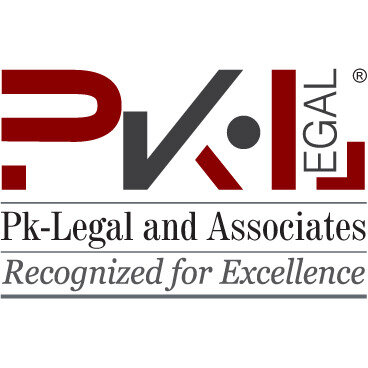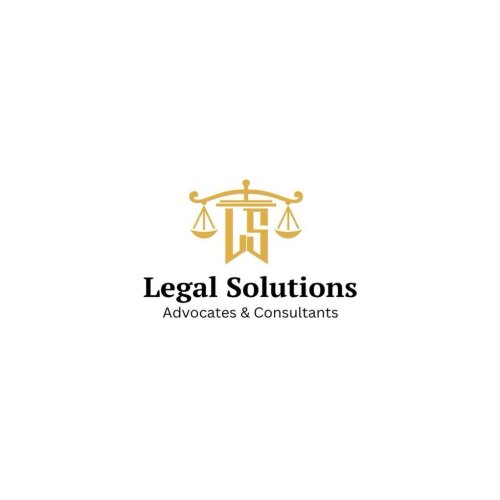Best Oil, Gas & Energy Lawyers in Rawalpindi
Share your needs with us, get contacted by law firms.
Free. Takes 2 min.
List of the best lawyers in Rawalpindi, Pakistan
About Oil, Gas & Energy Law in Rawalpindi, Pakistan
Rawalpindi, located adjacent to the federal capital Islamabad, is strategically significant in Pakistan's oil, gas, and energy sector. The region has seen considerable development in recent years, leveraging its position as a hub for the offices of numerous oil and gas companies. Oil, gas & energy law in Rawalpindi mainly concerns the exploration, extraction, and utilization of resources. It involves various regulations and legal frameworks that subscribers must adhere to ensure resources are developed sustainably and responsibly.
Why You May Need a Lawyer
If you are involved in the oil, gas, and energy sector, there are several situations where you may need the expertise of a lawyer:
- **Contract Negotiations**: Drafting and reviewing contracts for exploration and extraction can be complex, requiring specialized legal guidance to ensure your interests are protected.
- **Regulatory Compliance**: Navigating the complex regulatory framework in Pakistan can be challenging. Lawyers specialized in this field can help ensure that your operations comply with local laws and regulations.
- **Environmental Issues**: Legal issues surrounding environmental regulations are common. A lawyer can assist in resolving disputes related to environmental impact and compliance.
- **Dispute Resolution**: Conflicts may arise with government bodies, partners, or competitors; legal support is crucial for defending your rights and interests.
- **Mergers and Acquisitions**: Lawyers are essential in guiding you through the legal intricacies of major corporate transactions in the industry.
Local Laws Overview
The legal environment for oil, gas, and energy in Rawalpindi, Pakistan is shaped by various local and national legislations:
- **Oil and Gas Regulatory Authority (OGRA)**: This authority is responsible for regulating the midstream and downstream petroleum industry to ensure safe and reliable supply and distribution.
- **Petroleum Policy**: The government's Petroleum Policy outlines the legal framework for the exploration and production of oil and gas.
- **Environmental Protection Laws**: These laws aim to control pollution and environmental degradation caused by industrial activities.
- **Renewable Energy Policies**: Focused on promoting sustainable energy resources and includes incentives for the development and utilization of renewable energy.
Understanding these laws and how they apply to your operations is essential for legal compliance and business success.
Frequently Asked Questions
What is the role of OGRA in Pakistan's oil and gas sector?
OGRA is responsible for the regulation of the oil and gas industry, focusing on ensuring fair pricing, quality of fuel, and safety standards across the supply chain.
Are there specific environmental regulations for energy projects?
Yes, the Pakistan Environmental Protection Act requires energy projects to comply with various environmental standards, including conducting Environmental Impact Assessments (EIA).
What taxes are applicable to oil and gas companies in Pakistan?
Oil and gas companies are subject to corporate income tax, royalty payments, and various other levies and fees dependent on the nature and extent of their operations.
How can I legally acquire land for an energy project in Rawalpindi?
Acquiring land involves several legal steps, including obtaining permissions from local authorities and ensuring compliance with zoning laws and regulations.
What are my legal obligations when setting up a renewable energy project?
Renewable energy projects must comply with government policies promoting sustainable development, including adherence to specific regulatory approvals and incentives.
Is arbitration a preferred method of dispute resolution in this sector?
Yes, arbitration is often preferred due to its efficiency and confidentiality, especially for resolving international commercial disputes related to energy projects.
Are there incentives for foreign investment in Rawalpindi's energy sector?
The government offers several incentives, including tax breaks and eased regulatory requirements, to attract foreign investment in the energy sector.
What is the significance of Pakistan's Petroleum Policy?
The Petroleum Policy guides the exploration and development of oil and gas resources, laying down the rights, responsibilities, and incentives for enterprises in this sector.
Can I import energy equipment without restrictions in Pakistan?
Importing energy equipment requires compliance with relevant import regulations and may necessitate obtaining certain licenses and approvals.
What ongoing legal compliances are needed for operational energy facilities?
Operational compliances include regular reporting to authorities, safety audits, environmental clearances, and adherence to technical and safety standards.
Additional Resources
Here are some resources and organizations that can provide further assistance:
- **Oil and Gas Regulatory Authority (OGRA)**: The main regulator for the oil and gas sector in Pakistan.
- **Pakistan Environmental Protection Agency**: Offers guidelines and support for compliance with environmental laws.
- **Ministry of Energy (Petroleum Division)**: Responsible for developing policies related to oil and gas sectors.
- **Alternative Energy Development Board (AEDB)**: Promotes renewable energy policies and projects.
Next Steps
If you require legal assistance in the oil, gas, and energy sector in Rawalpindi, consider the following steps:
- **Identify Specific Needs**: Determine what legal services you need, such as contract negotiation or regulatory compliance advice.
- **Research Attorneys**: Look for lawyers or firms specializing in oil, gas, and energy law with a proven track record.
- **Schedule Consultations**: Meet with potential attorneys to discuss your needs and evaluate their expertise.
- **Verify Credentials**: Ensure that your chosen attorney is licensed and in good standing with the Pakistan Bar Council.
Starting with these steps will help you navigate the complex legal landscape of Rawalpindi's oil, gas, and energy sector effectively.
Lawzana helps you find the best lawyers and law firms in Rawalpindi through a curated and pre-screened list of qualified legal professionals. Our platform offers rankings and detailed profiles of attorneys and law firms, allowing you to compare based on practice areas, including Oil, Gas & Energy, experience, and client feedback.
Each profile includes a description of the firm's areas of practice, client reviews, team members and partners, year of establishment, spoken languages, office locations, contact information, social media presence, and any published articles or resources. Most firms on our platform speak English and are experienced in both local and international legal matters.
Get a quote from top-rated law firms in Rawalpindi, Pakistan — quickly, securely, and without unnecessary hassle.
Disclaimer:
The information provided on this page is for general informational purposes only and does not constitute legal advice. While we strive to ensure the accuracy and relevance of the content, legal information may change over time, and interpretations of the law can vary. You should always consult with a qualified legal professional for advice specific to your situation.
We disclaim all liability for actions taken or not taken based on the content of this page. If you believe any information is incorrect or outdated, please contact us, and we will review and update it where appropriate.












